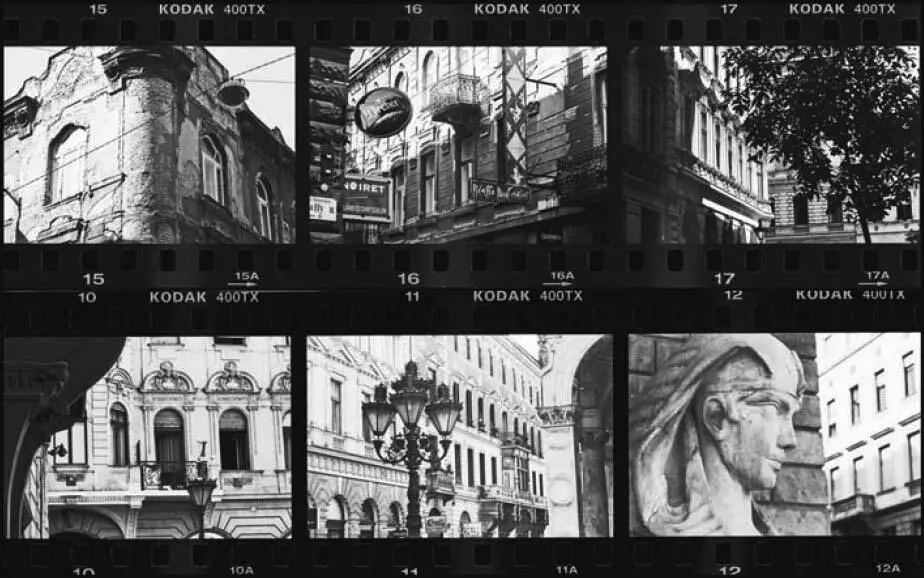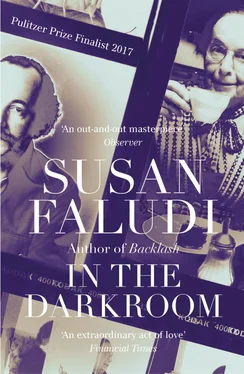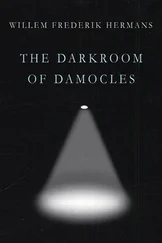“Dad, Stefánie, how are you? I want—” My desire got lost in my own incoherence.
“—and they came right into my yard, and the neighbors did aaabsolutely nothing, no one saw anything, waaall, that’s what they said. But they were great at Rosenheim, the man there was vaaary nice, he said to me, ‘Oh, meine gnädige Frau , it’s not safe for a woman to travel alone!’”
“Rosenheim?” I asked. I put my luggage on the cart, and she led the way to the parking garage. I trailed behind, watching uncomfortably the people watching us. The dissonance between white heels and male-pattern baldness was apparently drawing notice. Some double-chinned matrons gave my father the up-and-down. One stopped in her tracks and muttered something. I didn’t understand the words, but I got the intent. When her gaze shifted to me, I glared back. Fuck off, you old biddy , I thought.
“Rosenheim VW,” my father said, “in Germany, where I bought the new camper, aaand my old one, they do all my servicing and maintenance, aaand I register the camper there, you can’t trust anyone else to work on it, waaall, they’re German, they’re very good, and the man was very courteous. Now that I’m a lady, everyone treats me very nicely.”
We had no trouble finding the van. It was, as advertised in the brochure my father still had at home, VW’s biggest model (eight and a half feet high), “Der California Exclusive.” It looked like a cruise ship beached in a parking lot, a ziggurat on wheels. A heavily defended ziggurat: my father had installed a wrap-around security system, which she set off twice while trying to unlock the driver’s door. Right there in the airport lot, she gave me the tour: the doll-sized kitchenette (two-burner gas cooker, fridge, sink, fold-out dining table, and pantry with pots and pans and well-stocked spice rack), a backseat bench that opened into a double bed (an overhead stowaway held duvet, linens, and pillows), a wardrobe with a telescopic clothesrail, and, in the very rear, a tiny bathroom and closet (with towels, toiletries, wall-mounted mirror). She opened up the cabinets to show me the dishware she’d just purchased, a tea service in a rosebud pattern.
I couldn’t quite put the disparities into focus: Motor Trend meets Marie Claire. Was this why I’d flown fifty-six hundred miles? Here we were, meeting after twenty-seven years, a high-stakes reunion after a historic Glasnost, and she was acting like she’d just returned from Williams-Sonoma by way of NAPA Auto Parts.
“Ilonka helped me pick it out,” my father said, handing me a saucer to admire.
Ilonka—I had met her; for some years after my father returned to Hungary she’d been what he called his “lady friend.” She had accompanied my father to a family wedding in California, but I hadn’t gleaned much from our encounter: she spoke no English. I wasn’t clear on their relationship—though Ilonka would tell me later that it was platonic. She was married and very Catholic. For years she seemed to function as an unpaid housekeeper for my father, cleaning, cooking, sewing. She helped him pick out the furnishings for his house, from the lace curtains to the vintage Hungarian Zsolnay porcelain (purchased to impress a snooty couple, distant kin of Ilonka’s, who had come to dinner at my father’s house one night; the husband had claimed to be a “count”). My father had taken Ilonka on trips around Europe and loaned money to her family. When one of her grandchildren was born, my father assumed the duties of godfather, now godmother.
“How is Ilonka?” I asked.
My father made a face. “I don’t see her so much.” She took the saucer from me and placed it carefully on the cabinet shelf with its mates. The problem evidently was Ilonka’s husband. “It was fine with him when I was the man buying things for his wife and giving money to his family. But now that I’m a woman, I’ve been banished.”
She shut and secured the cupboard doors. We went around to the front. It took some effort to hoist ourselves into the elevated cockpit. My father disengaged the clutch and shifted into reverse and we lurched backward, nearly plowing into a parked car. I noted with dismay that the makers of the well-appointed Exclusive had excluded one feature: a usable rear window. The tiny transom above the commode showed only empty sky.
At the pay booth, she fished through her purse for her wallet. The ticket taker, another Magyar babushka, stuck her head out the window and gave my father the once-over. As the bills were counted, I studied my father, too. I could see the source of her thickening hair (a row of implant plugs) and the lightened color (a dye job). Her skin had a glossy sheen. Foundation powder? Estrogen? What struck me most forcefully, though, wasn’t what was new. I’d spotted it in the airport—that old nervous half-smile, that same faraway gaze.
On the road, she steered the lumbering Gigantor into the fast lane. It was rush hour. A motorist trailing us in a rusted subcompact blasted his horn. My father leaned out the window and swore at him. The honking stopped. “When they see I’m a laaady, they pipe right down,” she said.
We merged onto a highway, and I gazed out the window at the dilapidated industrial back lots flying by, a few smokestacks belching brown haze, boarded-up warehouses with greasy windows, concrete highway dividers slathered in graffiti. We passed through a long stretch of half-finished construction, grasses growing high over oxidizing rebar. Along the shoulder, billboards proliferated, shiny fresh faces flashing perfect teeth, celebrating the arrival of post-Communist consumption: Citibank, Media Markt, T-Mobile, McDonald’s. Big balls of old mistletoe parched in the branches of trees. Along the horizon, I could make out the red-roofed gables of a distant hamlet.
Half an hour later, we entered the capital. My father threaded the monster vehicle through the tight streets of downtown Pest, shadowed by Art Nouveau manses nouveau no longer, facades grimy and pockmarked by a war sixty years gone. A canary-yellow trolley rattled by, right out of a children’s book. We drove past the back end of the Hungarian Parliament, a supersized gingerbread tribute to the Palace of Westminster. In the adjacent plaza, a mob of young men in black garb and black boots were chanting, waving signs and Hungarian flags.

“What’s that about?” I asked.
No answer.
“A demonstration?”
Silence.
“What—”
“It’s nothing . A stupid thing.”
Then we were through the maze and hugging an embankment. The Royal Palace, a thousand-foot-long Neo-Baroque complex perched on the commanding heights of Castle Hill, swung into view on the far bank of the Danube, the Buda side. My father swerved the camper onto a ramp and we ascended the fabled Chain Bridge, its cast-iron suspension an engineering wonder of the world when it opened in 1849, the first permanent bridge in Hungary to span the Danube. We passed the first of the two pairs of stone lions that guard the bridgeheads, their gaze stoical, their mouths agape in perpetual, benevolent roar. A faint memory stirred.
The camper crested the bridge and descended to the Buda side. We followed the tram tracks along the river for a while, then began the trek into the hills. The thoroughfares became leafier, the houses larger, gated, many surrounded by high walls.
“When I was a teenager, I used to ride my bicycle around here,” my father volunteered. “The Swabian kids would say, ‘Hey, you dirty little Jew.’” She lifted a hand from the wheel and swatted at the memory, brushing away an annoying gnat. “Yaaas but,” she answered, as if in dialogue with herself, “that was just a stupid thing.”
Читать дальше













